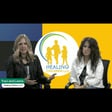Become a Creator today!Start creating today - Share your story with the world!
Start for free
00:00:00
00:00:01

Season Two/Episode Seven: Unmasking Adult ADHD Beyond the Childhood Diagnosis
Have you ever wondered why you struggle with organization, time management, or completing tasks – despite being a capable adult? Join us as we unravel the complexities of Adult ADHD with expert Billy Roberts. In this eye-opening episode, we explore how ADHD manifests differently in adults than in children, why many adults go undiagnosed for years, and what a proper diagnosis could mean for your life.
Whether you're questioning your own experiences, supporting someone with ADHD, or simply curious about this often misunderstood condition, this episode offers vital information and hope for adults navigating life with ADHD.
Transcript
Introduction to Guardians of Hope
00:00:06
Speaker
Welcome to the Guardians of Hope podcast, where we bring together parents, nonprofits, legal and medical experts dedicated to positively impacting children's lives. I'm your host, Cynthia Ramseran. The thoughts and opinions of my guests are not necessarily my own. So thank you all for joining and sharing.
00:00:27
Speaker
hey Welcome, everyone.
What is Adult ADHD?
00:00:29
Speaker
Today we're diving into a topic that affects millions of adults worldwide, yet often goes unrecognized and undiagnosed, adult ADHD. While many of us associate ADHD with childhood, the reality is that this neurodevelopmental condition doesn't simply we disappear with age.
00:00:51
Speaker
In fact, many adults struggle with ADHD symptoms for years without understanding why they face certain challenges in their daily lives.
Billy Roberts' Journey with ADHD
00:01:00
Speaker
Joining us today is Billy Roberts, founder and clinical director at Focused Mind ADHD Counseling, who has extensive experience in diagnosing and treating adult ADHD. We'll explore how this condition manifests differently in adults compared to children discuss the diagnostic process, and share strategies for managing ADHD effectively. Billy, thank you so much for joining me today. Thank you so much for having me. So why don't you tell us a bit about your background and your work experience?
00:01:36
Speaker
Yeah, so um I um started focus mind agency counseling about five years ago. um My history in the profession, you know, when I graduated college, I was a ah double major between theater, actually, and psychology.
Starting an ADHD-Focused Practice
00:01:53
Speaker
So quickly when I you know moved to New York City and kind of figured out that wasn't for me, I got into more of the the psychology side of things and I got into this great job um at the and NYU Child Study Center and it was a holistic treatment center that focused on providing services for kids, many of whom had neurodevelopmental stuff going on like autism and and ADHD.
00:02:16
Speaker
but they really had this holistic model of mental health where they had like workshops and family counseling and it was kind of there that I developed my passion for ADHD. um I also have adult ADHD so you know I'm familiar with how we ADHD or see the world in life. So I got interested in starting my own practice that was ADHD focused because once I got my degrees in mental health and advanced degrees to become a therapist so I quickly developed just a knack for treating ADHD. It just became sort of like ah a specialty of mine. And when I moved to Columbus with my wife, I think myself, like a lot of clinicians around the country were seeing that there was this huge need for adults with ADHD, um in particular the testing for ADHD.
00:03:01
Speaker
um A lot of folks are seen for evaluations and the ADHD is completely overlooked or mistaken for something else or they have co-occurring things going on, it it all gets lumped into a different bucket than ADHD. And just in terms of specialized services, so so counseling that specifically helps and supports ADHDers. So I started this holistic practice to focus on you know, the testing for ADHD, counseling for ADHD, couples counseling for ADHD, and can help folks with the co-occurring things that might come up with it, like depression and anxiety and things like that. So yeah, happy to be here. Thank you for sharing that with us.
History and Cultural Context of Adult ADHD
00:03:40
Speaker
And you touched a little bit about this, but I want to dive in a little bit more about what prompted the medical community to recognize that ADHD continues into adulthood. And how has its understanding evolved over the years?
00:03:56
Speaker
Yeah, so in terms of the medical literature, it actually has the mention of adult ADHD has been around for centuries. so it actually is was We first saw people talking about it in then in the 1700s, and it doesn't really pick up steam in terms of the diagnostic manual and um in America until the 1960s.
00:04:15
Speaker
But then it's called like it it's like childhood kinetic syndrome or something like that. So what happens is the reason adults start getting notices in the 70s, they start doing longitudinal studies. So there are psychologists that are tracking the kids that these kids that were diagnosed in childhood and noticing a lot of them still had ADHD stuff going on in adulthood. It doesn't really you know, start really, really picking up major steam until the 1990s. That's when um it's included in the diagnostic manual and adults can be diagnosed with ADHD. um But it's also around the time where research is just really picking up steam. And there's a little bit of a cultural phenomenon going on because this book is released called Driven to Distraction by Dr. Ned Halliwell.
00:04:58
Speaker
um It's really famous because it's one of the pioneering texts for the public where they really he really gets into why ADHD is different than other stuff. So he gets into the differences between ADHD and depression and anxiety and does a deep dive on it. So why this is really interesting is because medical literature is sort of converging with the public because all the hundreds of thousands of people were not diagnosed as children and they're reading this book And they're all coming out of the woodwork saying, hey, I think I have ADHD. And a lot of them turned out to be right. So all these specialty practices started popping up. But you know part of the issue was back then is that the childhood specialists were we're trying to figure out how to support adult you know adult ADHD. And I think
00:05:43
Speaker
you know, ever since that time, we've sort of been trying to rapidly catch up on how ADHD impacts adults um because of this gap in acknowledgement and services that have been going on for so many years.
ADHD in Children vs. Adults
00:05:55
Speaker
um It's evolved in other ways too, in terms of the criteria, and they've lifted some of it, a little bit of the age requirement, but it's it now includes adults as well. Perfect. Thank you for letting us know about that. And you talked a little bit about children, childhood, and adults realizing, hey, I may have had this or and I may have this. Maybe you could walk us through the key differences between how ADHD presents in children versus adults.
00:06:24
Speaker
Yeah, so I think the thing to to explain for, yeah, so ADHD, essentially, the the brains executive functions work different ADHD brains than non ADHD brains. And the executive functions essentially guide your current behavior towards the future.
00:06:41
Speaker
So they it's they're responsible for self-regulation, emotional regulation, impulse control, responsible for keeping you on track in terms of your goals, like not getting off track if you set a goal in the future. You're working memory, so re quick recall, um sustaining your attention for long periods of time.
00:06:59
Speaker
And the thing to remember about that is that kids develop those executive functions. ADHD kids develop them at a rate 30% behind their peers. So a lot of the times what you see is really dramatic differences sometimes in ADHD children versus not ADHD children in terms of their how they're keeping up with the developmental demands of childhood.
00:07:18
Speaker
So someone might enter middle school and all of a sudden they're struggling to manage homework. They're struggling to but you know absorb things, get things in on time. You might have a middle schooler who's who's more ah you know might be having like tantrums and things like that that that feel like their social emotional development is slightly behind their peers. And sometimes that lasts into young adulthood. So you know you might see a lot of young adults who are like, I feel like I'm behind my peers. I feel like I haven't accumulated as many accomplishments. And while that might be true of all young adulthood, it disproportionately affects adults with ADHD.
00:07:49
Speaker
Once you get into like firmly adulthood, all those traits are there. They just look different. and some of the it's not as they're not keeping There's not as much of a drastic change in terms of development. It's more situational. so An adult might struggle with things like time management at work. Kids don't really manage their time. The world manages their time. like Teachers manage their time. They're told where to go. They're told how to where to send the things, but adults they have to regulate their relationship to their time. So they have to regulate when they start projects, when they do chores, how they do chores, predict how long things will take. And so sometimes that can be one of the major differences between how adults experience it situationally versus in terms of their developmental um stages. And then another thing about is masking. So adults with ADHD tend to, through social learning, social conditioning, they start to develop insecurities about some of the traits of ADHD. So if someone is known to
00:08:42
Speaker
talk, interrupt people in conversation. They might actually start to avoid social situations because they develop insecurities or they might become perfectionistic because they're trying to mask any kind of like unintentional errors they would make from losing focus. um So sometimes the the compensatory strategies can also even lead to secondary conditions like depression and anxiety disproportionately more so in adults. all it Thank you.
Recognizing Adult ADHD Symptoms
00:09:05
Speaker
What typically brings adults in? You mentioned the presentations how you know some of the traits or symptoms Yeah. What actually brings them in an adult in for an ADHD evaluation? Are there common life events or situations that tend to trigger seeking diagnosis?
00:09:24
Speaker
A lot of the times it is transitions. So someone's first job out of grad school or you know they have kids or they're getting married or they got a promotion at work, they're entering leadership positions, they start their own business and they're struggling with the details but they're really good at the creative side of things. um A lot of the times it might be a spouse so you know a lot of times ADHDers will find that their executive functioning stuff, they're able to to manage a home environment. They'll say things like, ah well, you know, it's organized chaos. So like, you might think it's disorganized. You might see piles and different things, but I know where everything is. However, if they start to to domesticate and they move in with someone whose brain works in a more linear, neurotypical way,
00:10:06
Speaker
those things might create tension because someone else is just a little bit better at like the organizational things or has a different style for, for doing it. So over the years, those kinds of how couples start to manage life might start to, the differences might to start to become more apparent. And I think, you know, the more ADHD is out there and the more people are learning about it. Sometimes it's a spouse or a good friend or someone in their personal lives. It's like, Hey, have you ever noticed that this is stuff that you do? And because ADHD years don't,
00:10:33
Speaker
experience ADHD as a symptom. They often just think that that's how everyone's brain works. Not that it is a symptom per se, but it's it's a difference in terms of neurotypical behavior. You talked about linear, um the way the brain works, two different ways. You said linear and then you said neurodivergent. Can you yeah just briefly explain what the difference is for everyone knowing? Yeah, so neurodiversity is the idea that um You were all, you know, there's that 88 will take ADHD. It's just a different way of experiencing the world neurologically that we all just have differences neurologically. And so for ADHD years.
00:11:14
Speaker
It's not that they don't have an attention span. It's a dysregulated attention span. So their brains almost have too much attention. Like they want to be everywhere. They want to see things. They consume things. They like new things. They like creativity. And so that causes outwardly, you might see zigging and zagging. So a lot of like, this is really interesting. I'm kind of over this. I'm going to start this new thing. And someone who without ADHD has a different way of ah their executive functioning working where they they kind of like build momentum towards a goal and they just kind of can build each day on top of the next. And so as a result, they don't get sidetracked. Okay. Perfect. Thank you for explaining that.
How is ADHD Evaluated?
00:11:52
Speaker
Sure. go Let's talk about the evaluation process for adult ADHD. What can someone expect when speaking a diagnosis?
00:12:00
Speaker
Yeah, so the first thing you're looking for is a specialist. um I think just because of the our field's history and how we're all catching up, you know I think it really does take someone who does this, and this is what they do, to most give you the most accurate diagnosis. So once you find that specialist, the ADHD evaluation process usually takes about two to three hours. um There's usually a couple of different steps. To differentiate it from other conditions, you need to do what they call a multi-data assessment.
00:12:29
Speaker
So one thing you might do is you give rating scales and questionnaires or have someone who knows them well come with them the evaluation. This is because folks with ADHD tend to under report symptoms or their traits. So they might not always be 110% aware of some of the things that they do that might be different and might meet criteria for ADHD.
00:12:49
Speaker
The next thing you're going to do is administer rating scales and questionnaires to them. So what those rating scales are measuring are executive functions and they're normed between the neurotypical population and the adhd population So you're trying to see if those scores align repetitively with ah individuals in the ADHD world to see if those folks struggle with executive functioning stuff more than the neurotypical population. um You're then going to do a thorough interview. And so the thing to recognize is that all people at points of their lives might have um differences in their executive functioning.
00:13:24
Speaker
And they might have challenges in their terms of their focus, but ADHD has a developmental course so it's it's the entire life course is in some way affected and could get different and change or if they could have trouble with focus in different ways based on their circumstances, but it's always something that's been happening, you know, since childhood.
00:13:40
Speaker
And then you also should expect some sort of objective tests. There's lots of different ones you could do. There is no one test that's perfect at diagnosing ADHD. That's why we do so many different, we do a multi-data assessment to look at all of it and put the pieces together with a lot of different data. So the objective testing could be like a focusing test or an attention span test um that helps to similarly to the rating scales differentiate um neurotypical versus ADHD type behaviors as it exists in the room, like so how they perform in terms of their focus and impulse control in person. Okay. Now, when being looked after by a mental health specialist or professional, how can they differentiate between ADHD and other conditions that might present similar symptoms, maybe like anxiety or depression?
Distinguishing ADHD from Mood Disorders
00:14:29
Speaker
Yeah. So I think the major one is that, you know, if someone is ADHD and they have depression, they're going to focus more. They're going to have more focusing issues versus someone who has depression. They might also struggle with focusing issues, but when that depression lifts, they won't have the ADHD traits anymore. Like they're, they're not going to be affected long-term in the same way that someone with ADHD is. So it follows a chronic course and it's exists. It's in existence no matter what.
00:14:55
Speaker
The life course, you know, what's what's really helpful about adult ADHD is that kids can't self-advocate. Like a kid can't say clearly the way an adult can. Like, this is the past 30 years of my life. This is what's happened to me. And an adult can. They have lots of stories to tell. ADHDers, there's like lots of things that have happened. So um we have a term mental health called look for elephants in the butter.
00:15:17
Speaker
So like if an elephant raids a fridge um and they raid your kitchen and then they leave, you're going to know that something happened in that kitchen. like It's not going to just look the way it did. And so those are the types of things we're looking for. Like, did someone change jobs multiple times because they got bored? um Did they get the boss say that they had trouble turning things in on time or seem distracted?
00:15:36
Speaker
do they feel deeply unhappy when they're doing things that are too mundane? And are they kind of ashamed of these things that really light them up and they're passionate about, but actually they would set the world on fire if they leaned in and embraced you know who they really are and what their interests were. um So you do see stuff stuff that happens in people's history that's very unique to ADHD. That was a great analogy. Thank you. Okay, so we talked a lot about diagnosis and understanding what the traits are like.
00:16:07
Speaker
How does undiagnosed adult ADHD typically impact various aspects of life? i you know I mean, obviously undiagnosed or diagnosed, it's gonna impact your life the same way. um But if you don't know you have it and you can't cope or address what's happening, it can affect your career, relationship, personal wellbeing. So let's talk about that a little bit.
00:16:32
Speaker
Yeah. So if you think about domains of functioning, you would see stuff happening in different parts of life. So if it was work, maybe your boss is getting on your case for struggling to meet deadlines. Maybe they are talking about time management issues and things like that. You might often feel like you haven't met your potential. Like you've been overlooked. Like you know, you're capable of more or something different or you're not as happy as you could be, but you know, you feel like you can't seem to find your way. This can happen a lot in
Impact of Undiagnosed ADHD
00:16:58
Speaker
careers. So, you know, one of the things about ADHD is that you might have a hard time with the details and activating and procrastinating even on the and the stuff that isn't as interesting to you. So like invoicing or getting an LLC. So if you want to start a business, I mean, a lot of people with ADHD have really great ideas and ideas for businesses. They have lots of ideas. It's just hard to get things get the momentum and get things off the ground. um Marital stuff. So like a lot of ADHD gets misinterpreted by spouses. If you don't know that if the couple doesn't know that one person is ADHD,
00:17:29
Speaker
then forgetfulness might be interpreted as like as like is like um app are like cruelty even. um So what happens then is that all of that stuff compounds over the years and ultimately probably the the the biggest part, the biggest the most amount of suffering I see comes from self-esteem issues.
00:17:50
Speaker
So there can be a lot of toxic shame when it comes to ADHD, a lot of imposter syndrome, a lot of feeling like you can't be who you really are. um It affects your ability to assert yourself in the world, to put yourself out there, to take risks, to set boundaries with people. You often find ADHDers will overcommit and be yes people. um One part of that is like a reflexive, like, yes, I can do it. Yes, I can do it. I'll do it because you don't want to be in trouble. But also that you you feel like you have to make up for something all the time. Like you've often had developed this core belief of you're not good enoughness. Usually coming from repetitive criticism that you've received in childhood. um Like you only do good when you want to. You you um you don't apply yourself. Like, look at your brother. He's doing all this stuff and you're not. And you'd be astonished at the kinds of things that people with ADHD hear of their lives. so
00:18:38
Speaker
Ultimately, until you get that diagnosis and you don't know you have a brain that works differently and you can do just you can do great things in this world if you just figure out the best ways to to you know live life as an ADHD person, um you tend to moralize stuff. like You don't even know what to call it. You just feel not good enough and you feel broken rather than feeling liberated and feeling like you can be yourself and you're worthy of love and all that stuff. And you can set boundaries and you can manage your time and then all the coping skills and the strategies just click into place. Yeah, that makes complete sense. And you talked about coping strategies.
Coping Strategies for ADHD
00:19:14
Speaker
Yeah. We talked about treatment and coping strategies. and we Maybe we can group it together. But what are some of the effective coping strategies you've seen adults develop um over the years? And even you as a professional helping adults learn to develop, you know, after a diagnosis.
00:19:35
Speaker
Yeah, so a lot of the times folks luck out and they have um either found the right relationship where they're receiving the love that helps them feel supported. And that's an ideal situation. If we can start right there, that's that's great. And sometimes folks have found the right career. So they've found they've built their life around their interests. So maybe you see an entrepreneur, you know people with ADHD, you name it, doctors, lawyers, whatever professional, if they're interested, that interest can carry them through. And so they can be very successful in life. Like you can be a high achiever and have ADHD.
00:20:11
Speaker
um In terms of the coping, though, it it really just depends on each person and what works for them and what doesn't. some of the like the you know Therapy for ADHD in particular would focus on both the skills and the way of managing a brain that just needs some help strategies to to focus better differently. um But also the emotional stuff, so helping folks work through the shame, work through the the imposter syndrome, feel confident. um Some things you might see folks learn to do that are self-compassion tools and things like that.
00:20:43
Speaker
um But in terms of you know managing the neurological components, a lot of it is about externalizing things. So externalizing motivation, having accountability, um you know getting yourself activated because there's something outside of yourself that's keeping you in place or holding you accountable. um you know Offloading things. So a lot of times entrepreneurs will have ADHD.
00:21:05
Speaker
And they'll be so great at writing the thing or doing the that, you know, special part of the job or the leadership stuff. And there might be, you know, they might need some support on the invoicing or things like that. And so let's get them that support. Let's offload as much of the stuff that's that's that's weighing down or feeling overwhelming.
00:21:24
Speaker
um A lot of it's about chunking things down, breaking things down into smaller parts, things that are more manageable, ways of talking to yourself or or literally writing things down so that things can be just feel more doable. um I mean, having fun is a big part of having ADHD.
00:21:39
Speaker
A brain that loves excitement and loves energy cannot be deprived of drinking. that It's like taking away water. So like these chairs need to be planful in terms of like how they have fun, where they get their creative energy going, having a hobby, having a passion project. um That's that part where you're really practicing self-acceptance and leaning into ADHD rather than fighting it all the time.
00:22:00
Speaker
That's where you get the shame. That's where you get to discouragement. So a big part of ADHD, you know, treatment tends to be managing emotions, like how can we manage the guilt? How can we manage the shame and the fear so that you can show up and be your best self and be present in the moment? um And life doesn't have to feel so overwhelming when you can do that. Yeah, absolutely. And what about medical treatment?
Medical Treatments for ADHD
00:22:25
Speaker
yeah What types of treatment options are available and what are you excited about? Yeah, um so the medical stuff, um that would be more in the world of medication like psychopharmacology. The way I view that is it's it's a coping skill. um You know, at the end of the day, the the model of ADHD treatment is very um
00:22:50
Speaker
You always, like it's not a disease model where you might think of it like a pneumonia or like taking the medicine for a cure. It's just like a boost. Like it gives your brain an energy boost a lot of the times and helps you focus when you're on it. But you always have ADHD, like even when you're off of it or you don't take it at some point in your life. So um I look at it as like as a supportive tool, you know, in general.
00:23:10
Speaker
um Nothing anyone has to do if they don't want to unless there's a lot of dysfunction going on or you know they really need that support for some so period of their lives. um But it is really effective. It's a proven intervention. um you know I think a psychiatrist would be better equipped to explain the different types, um but it is in terms of psychiatry, a very treatable, you know very you can get support that way. Okay. And then what about behavioral treatments?
Behavioral Treatments for ADHD
00:23:37
Speaker
Yeah. I'm going to, you know, so a lot of that is managing the environment. So like, do you have an environment that's conducive to how your brain works? And are you becoming your own self advocate? I think that's honestly a missing part of a lot of treatment for ADHD is that there's one thing to to seek accommodations in a formal way. But I think a lot of folks with ADHD struggle with so much rejection sensitivity and feeling of disempowerment that they don't feel empowered to ask for what they need and to ask for help.
00:24:02
Speaker
So some of it is like, what would actually help in this situation? Like, do you need your own office? Like, do you need like someone to meet with you once a month? And I think you'd be surprised at how um understanding your boss, whatever it is, might be if you just kind of were upfront about some of what your needs might be.
00:24:19
Speaker
um And then in terms of the cognitive behavioral stuff, a lot of that is managing emotions. um Adults with ADHD, it's part of the it's not in the diagnostic criteria, but it's it's a big part of living life with ADHD where self-regulation impacts emotional regulation. So a lot of times adults with ADHD don't recognize how they feel and they have a hard time regulating how they feel and and having a stopgap between emotion and response. So a lot of it, what happens then is the emotions almost become distractions in themselves. So you get gobbled up. So if you're someone who has self-esteem stuff, you might feel shame and guilt a lot. That gobbles up your the lens at which you see the world. And if that's how you're seeing the world, you're automatically going to anticipate rejection. So you might not put yourself out there as much.
00:25:01
Speaker
So some of the CBT stuff comes up in the behavioral stuff and helping people work through that so they can reframe how they're thinking about things or regulate their emotions so that then all their strengths and their unique um you the unique parts of ADHD that actually serve them, they can put those to use. Okay.
Self-Discovery and Resources for ADHD
00:25:19
Speaker
Really, I have one more question for you, and that's just how we can learn more. So what resources would you recommend for adults who think they might have ADHD or were recently diagnosed?
00:25:31
Speaker
Yeah, so in terms of wanting to know if you have it, there are online quizzes and things like that. And I know we live in a culture of quizzes, and everyone's trying to tell you you have something. But for this, I'm all in. I think folks should take a quiz. And it's not a diagnosis. But if you have a score that's elevated, or if you're seeing these things, or you're reading a book about Asia, you're like, this is my life.
00:25:53
Speaker
Then you're in that you might be in that category of people in the 90s who read Dr. Ned Halliwell's book and read all about it because you're not you know no one ever said anything to you as a kid. so Sometimes you have to like do your own research and really and recognize that that might could be what's going on for you.
00:26:10
Speaker
um In terms of resources for if you've just been diagnosed, I think the warmest and most welcoming people, honestly are some of these influencers online who have they might not even be doctors, but there are people who understand on a deeper level, what ADHD is like they they have ADHD and they they can share with you some of their like life hacks and things like that. um My favorite one, Jessica McCabe is her name. She's got one called How To ADHD. She's all over YouTube. She's amazing. um She's a very charismatic and very thoughtful and she interviews specialists and things like that. But I think because she's speaking at it from the heart, it really seems to land for folks in a way because it really does take someone who knows ADHD, the lived experience, that really helps to make the connection and make some of those skills more accessible.
00:26:59
Speaker
OK, really, thank you.
Engage with Focused Mind ADHD Counseling
00:27:01
Speaker
Now, how can we learn more about you and what you're doing and how anyone can get in touch with you if they'd like to? Yeah, I'm over at FocusMindADHDcounseling.com. We've got a team of folks, so a lot of different counselors who understand ADHD on a personal level. um And you know we can see folks in the state of Ohio right now, but you're always welcome to reach out and say hi. We have like a blog and things, so um we're out there. Excellent. Billy, it was so great to meet you and shed light on this topic. Thank you so much for your time. Yeah, you got to take care. Thanks for having me.



















